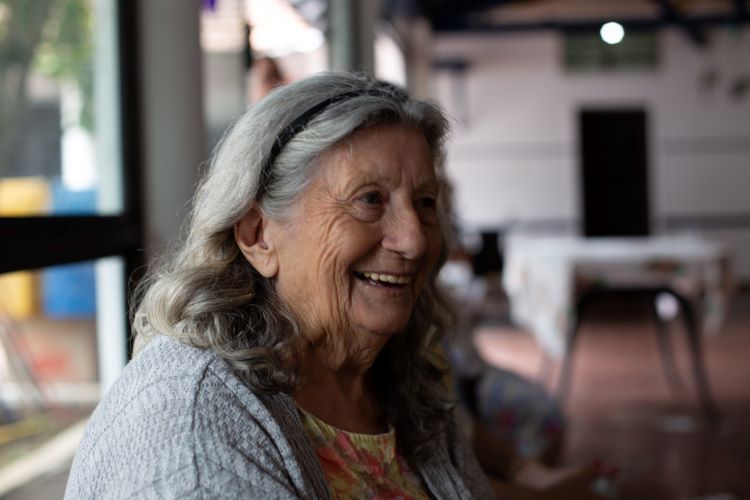Drug & Alcohol Rehab in South Yorkshire or near South Yorkshire
Quick Links for Drug & Alcohol Rehab in South Yorkshire or near South Yorkshire
- What Is Drug Rehab & Alcohol Rehab in South Yorkshire Like?
- Pre-Rebab Steps: Intervention for Drug Rehab & Alcohol Rehab in South Yorkshire
- The Cost Of Attending Drug Rehab & Alcohol Rehab In South Yorkshire
- How Long Does Drug Rehab & Alcohol Rehab Last in South Yorkshire or near South Yorkshire?
- NHS VS Private Drug Rehab & Alcohol Rehab in South Yorkshire
- Inpatient VS Outpatient Drug Rehab & Alcohol Rehab in South Yorkshire & near South Yorkshire
- Therapy Techniques Offered at Drug Rehab & Alcohol Rehab in South Yorkshire and near South Yorkshire
- Dual Diagnosis for Co-Occurring Disorders at Drug Rehab & Alcohol Rehab in South Yorkshire
- Relapse Prevention Planning at Drug Rehab & Alcohol Rehab in South Yorkshire and near South Yorkshire
Addiction is a terrible disease that can affect any of us, no matter who we are or where we come from.
Understanding addiction starts with understanding the numbers surrounding it
Whilst most people know that millions of people across the world suffer from addiction, most people probably don’t know just how many people are addicted to drugs and alcohol in their hometown, city or county.
When it comes to looking at addiction statistics in South Yorkshire, there has been a lot of research.
For example, between 2016 and 2017 approximately 48,875 people had experimented with drugs in Sheffield alone.
Within South Yorkshire, the most commonly abused drugs are heroin, cocaine and cannabis, which is pretty standard for most places across the UK.
This is a clear sign of just how much drug rehab and alcohol rehab is needed in South Yorkshire and beyond.
What Is Alcohol Addiction?

Black and white photo of a couple holding hands at a drug & alcohol rehab in South Yorkshire
Alcohol addiction can affect anyone.
To be addicted to alcohol is when you are no longer able to control your own actions surrounding your use of alcohol.
Alcohol addiction is a common disease, with a study by Robin Room, Thomas Babor and Jürgen Rehm revealing that ‘4% of the global burden of disease is attributable to alcohol’, accounting for almost as much death and disability as tobacco and high blood pressure (hypertension) globally.
It is important to remember that alcohol addiction is a disease of the brain and changes the way the brain functions, meaning that many people are not in control of their own actions when it comes to their use.
If you are binge drinking a lot or drinking alcohol daily, you are at risk of wernicke’s encephalopathy and alcoholic hepatitis.
It is reported that about 14% of alcoholics develop liver cirrhosis if they continue their drinking habits for over a period of 8 years. It is best to stop drinking today so that you can have the best chance at a full recovery.
Below is a list of some very common signs and symptoms of alcohol use:
- Feeling and looking very irritated.
- Increased consumption of alcohol.
- Higher tolerance to alcohol.
- Constantly being late.
- Changes in friendship groups.
- Lack of hygiene.
- Avoiding eye contact.
- Suffering from other mental health issues alongside alcohol addiction, such as depression.
- Smelling of alcohol frequently or in the mornings.
- Struggling for money.
There are a few tests which can be utilised to see if your alcohol abuse constitutes an alcohol addiction. These include the Alcohol Use Disorders Identification Test and CAGE questionnaire.
Excessive alcohol consumption can turn life-threatening if left for long enough without alcohol rehab intervention.
For example, a severe addiction to alcohol can lead to liver disease, liver cancer, heart disease and diabetes, all of which can cause serious harm to wellbeing and further complicate eventual alcohol rehab treatment.
Medically-assisted detox at a drug and alcohol rehab will be necessary if you’re a heavy user, as it can be very dangerous to try to stop drinking alone.
Heavy drinking is deemed by the NHS as drinking more than 14 units per week.
During alcohol detox, you’ll be given drugs like chlordiazepoxide, (Librium), to stop the risk of alcohol withdrawal complications like delirium tremens and alcohol withdrawal syndrome.
Another medication used to stop drinking is Acamprosate (Campral®), which helps rebalance the chemicals in the brain that have been damaged by alcohol.
Alateen, and Al-Anon are charities that specialise in alcohol support. Their services are available in South Yorkshire, as well as throughout the UK.
As for your body’s recovery after drinking alcohol, damaged organs may regain function partially or heal altogether, depending on your state and whether you’ve had an alcohol relapse after rehab.
It is incredibly important to begin your alcohol rehab journey now, as being an alcoholic is thought to drastically lower your age of death. The average age of death for an alcoholic is 47–53 years in men and 50–58 years in women.
If you go on to have CBT therapy for alcohol addiction, a report has shown that the success rate is 83.87%. Continued therapy at alcohol rehab after initial alcohol detox treatment is therefore highly recommended.
What Is Drug & Alcohol Rehab in South Yorkshire Like?

Rehab stands for rehabilitation and is the main way people recover from drug and alcohol addiction all over the world.
It is an important and some would say essential part of anyone’s recovery journey and promotes health, prevention and treatment.
Drug and alcohol rehab is a place that helps people overcome their difficulties and become independent again.
It does this by addressing people’s issues head-on, whether this is a physical addiction, mental addiction or behavioural addiction.
Whilst at drug and alcohol rehab in South Yorkshire, people will be offered the opportunity to detox their bodies from the addictive substance in a safe and calm space.
People are then offered the chance to undergo therapy, such as CBT and motivational interviewing.
After this, individuals are given the chance to create their very own relapse prevention plan, which will contain a set of tools to help ensure that they do not undo all the hard work done and remain sober even after they leave drug and alcohol rehab.
Pre-Rebab Steps: Intervention for Drug & Alcohol Rehab in South Yorkshire

Chairs set up for group therapy at a drug & alcohol rehab in South Yorkshire
If you know someone who needs to attend drug and alcohol rehab in South Yorkshire who is not ready to attend drug and alcohol rehab but is in desperate need of help, then you should think about holding an intervention.
An intervention is when a set of friends or family members come together to motivate an individual to want to attend drug and alcohol rehab and fully recover.
It is extremely hard to watch someone you love struggle with an addiction, which is why an intervention is well worth the try.
Essentially, an intervention is a meeting with your loved one where you express your worries and any potential treatment options, such as local therapy options or full drug & alcohol rehab treatment.
It is important that you express your concern in a calm way, by using examples of the individual’s behaviour that worry and concern you.
You should also explain how their actions impact you and other loved ones.
If you are worried about your intervention running smoothly, then consider inviting an intervention specialist who will help control your intervention and make sure it runs as productively as possible, as well as provide insight about drug & alcohol rehab options in your local area.
CRAFT is also a fantastic and helpful tool to consult if you are hoping to hold an intervention soon, which contains tips and tricks on how to successfully motivate your loved one to seek help using positive reinforcement.
The Cost Of Attending Drug & Alcohol Rehab In South Yorkshire

Calculating cost for drug & alcohol rehab in South Yorkshire
Attending drug and alcohol rehab in South Yorkshire or indeed anywhere else in the UK can be costly.
However, you should always check to see if you qualify for NHS-funded drug and alcohol rehab to see if they can cover the cost of attending.
There are also lots of different standards of rehab centres.
Lots of celebrities tend to opt for the more luxurious drug and alcohol rehab centres which can cost as much as £70,000 for a usual 28-day stay.
However, this is very much the exception and most drug and alcohol rehab centres across South Yorkshire cost around £495 for every day you stay.
The cost of rehab also very much depends on how long you need to stay.
Whilst some people with a less severe addiction will stay only 10 days, others usually stay 28 days.
For more severe addictions, people will need to stay in drug rehab & alcohol rehab for as long as 90 days.
Is Drug & Alcohol Rehab In South Yorkshire Or Near South Yorkshire Paid For By The NHS?

Therapy session in progress at a drug & alcohol rehab in South Yorkshire or near South Yorkshire
The people in the UK and South Yorkshire are very lucky that the NHS pays for most of our healthcare needs.
If you are addicted to drugs or alcohol in South Yorkshire, then there is a chance that the NHS will cover some of the cost of drug and alcohol rehab.
However, not everyone qualifies for NHS-funded drug and alcohol rehab treatment.
If you live in South Yorkshire and are unsure, then you should always check with your local GP to see if you would qualify.
As drug and alcohol rehab can be extremely expensive, then it is always worth checking first.
How Long Does Drug & Alcohol Rehab Last in South Yorkshire or near South Yorkshire?

Wall clock at a drug & alcohol rehab in South Yorkshire or near South Yorkshire
Everyone’s addiction is different.
Therefore, the length of time an individual will need to spend in a drug or alcohol rehab centre will very much depend on the specifics of their addiction.
However, there are set average lengths of time people spend in rehab facilities.
- How long they have been battling drug or alcohol addiction.
- What substance they are addicted to.
- How severe their drug or alcohol addiction is.
- If they suffer from co-occurring disorders or mental health issues that would need to be accounted for at drug rehab & alcohol rehab in South Yorkshire
If an individual’s addiction is mild and they do not need to undergo a physical detox, then they might only need to stay in drug & alcohol rehab for 7 – 10 days.
However, if their addiction is more severe then they might need to stay for as long as 90 days.
If you want to attend drug and alcohol rehab in South Yorkshire but are anxious about how long you might stay, call our team today.
NHS VS Private Drug & Alcohol Rehab in South Yorkshire

There is no doubting the fact that attending drug and alcohol rehab in South Yorkshire is very expensive.
Therefore, you need to carefully consider whether you should opt for private or NHS-funded drug and alcohol rehab treatment.
NHS-Funded Drug & Alcohol Rehab in South Yorkshire and near South Yorkshire
Although not everyone is able to attend NHS-funded drug and alcohol rehab for a number of reasons, it is always worth asking your local GP first to check.
It is important to highlight at this stage that attending NHS-funded rehab does not mean that you will be placed in an NHS-managed facility.
Due to a lack of funding throughout the NHS in South Yorkshire, the NHS are only able to simply hire places within private drug and alcohol rehab centres.
Private Drug & Alcohol Rehab in South Yorkshire and near South Yorkshire
Private drug & alcohol rehab is great in many ways.
For example, there are no waiting lists which means that you will very often be seen within a few days of first enquiring.
You will also be looked after around the clock by the very best therapists and doctors in the area.
However, the main con when it comes to private drug & alcohol rehab is that it does cost thousands of pounds.
Because of this, not everyone is able to attend.
NHS-funded drug and alcohol rehab is free of charge, meaning that you will not need to pay for your treatment or stay whilst in rehab.
However, you will end up waiting weeks or even months before you get any rehab treatment.
Other organisations for Drug & Alcohol Rehab Support in South Yorkshire and near South Yorkshire
Below is a list of other organisations that offer free support and advice for addiction and support for drug and alcohol rehab in and around South Yorkshire:
1. Addaction Drug & Alcohol Support – Sheffield & South Yorkshire
Address: 42 Sidney St, Sheffield City Centre, Sheffield S1 4RH
Telephone: 01142 536 830
Website: http://www.addaction.org.uk/services/addaction-sheffield-dip-service
2. Change Grow Live Drug & Alcohol Support – Sheffield & South Yorkshire
Address: 44 Sidney St, Sheffield City Centre, Sheffield S1 4RH
Telephone: 01143 050 500
Website: https://www.changegrowlive.org/the-corner-sheffield/info
3. Centenary House CAMHS
Address: Heritage Park, 55 Albert Terrace Rd, Sheffield S6 3BR
Telephone: 01143 053 218
Website: https://www.sheffieldchildrens.nhs.uk/contact-us/maps/
You can also reach out to a number of helplines, including Mind UK, YoungMinds, Rethink Mental Illness, Samaritans and Papyrus, SMART Recovery or find an Alcoholics Anonymous, Narcotics Anonymous or Cocaine Anonymous near you. Your local NHS Foundation Trust in South Yorkshire will also be there to help you.
Inpatient VS Outpatient Drug & Alcohol Rehab in South Yorkshire & near South Yorkshire

Older woman at a drug & alcohol rehab in South Yorkshire
If you want to attend drug and alcohol rehab in South Yorkshire, then you will either attend outpatient or inpatient drug & alcohol rehab.
Which one you attend depends on your addiction, your needs and your own motivation levels to recover.
If you have a severe addiction and are struggling to find the motivation to recover yourself in South Yorkshire, then you will need to move into inpatient drug & alcohol rehab for an agreed period of time.
This is when you will be medically monitored regularly, have your food prepared for you and doctors on call 24/7.
If you are struggling from a mild addiction in South Yorkshire, and are motivated to recover yourself and are able to maintain a job and other responsibilities whilst suffering, then you will be admitted into outpatient drug rehab & alcohol rehab within South Yorkshire.
Throughout outpatient rehab, you will be asked to attend a rehab centre on a daily basis to attend therapy sessions and receive any medication.
However, unlike inpatient rehab, you will then be able to return home each day.
Alcohol Detox & Alcohol Rehab in South Yorkshire

Alcohol addiction support session at a drug & alcohol rehab in South Yorkshire
Anyone who wants to attend an alcohol rehab in South Yorkshire will need to detox their body before they can receive any therapy to help overcome their addiction.
Whilst acohol detox and alcohol withdrawal for many people is the most challenging part of their alcohol rehab journey, it is also the most rewarding too.
- Vomiting
- Dizzy spells
- Excessive sweating
- Flu-like symptoms
- Insomnia
- Delirium tremens (uncontrollable shaking due to alcohol use)
- Diarrhoea and bowel obstructions
Lots of individuals end up struggling with these withdrawal symptoms for a number of days, and they can start after just a few hours into your withdrawal.
The main reason why people attend rehab to undergo a detox is that these withdrawal symptoms can easily escalate into life-threatening conditions.
Due to this, you will be monitored by health workers throughout your alcohol detox.
If your withdrawal symptoms are extreme, then you might be prescribed some anti-anxiety medication to help you get through the worst of the withdrawal symptoms, or undergo a course of Librium-based alcohol detox whilst at alcohol rehab in South Yorkshire.
Cocaine Rehab in South Yorkshire and near South Yorkshire

Patient speaking with a therapist at a drug & alcohol rehab in South Yorkshire
Unlike alcohol, cocaine and crack cocaine are not a physically addictive substance.
Nonetheless, it is still a highly addictive substance, resulting in cocaine dependence.
Therefore, you will not need to undergo a physical detox in order to recover.
Instead, you will simply undergo a range of therapy techniques whilst at drug & alcohol rehab to help you break your psychological addiction.
Heroin Rehab in South Yorkshire and near South Yorkshire

Couple with a dog at a drug & alcohol rehab in South Yorkshire or near South Yorkshire
Millions of people across the world and thousands across South Yorkshire struggle with a heroin addiction.
Heroin is a highly addictive substance that takes over an individual’s mind and body.
This means that anyone who struggles with addiction to heroin will need to undergo a physical detox before experiencing more thorough further rehab therapy.
A heroin detox received in a controlled drug and alcohol rehab environment will reduce symptoms as you carry out your heroin withdrawal.
Buprenorphine is one medication that will make it easier to recover and can be prescribed whilst at drug & alcohol rehab in South Yorkshire.
Cannabis Rehab in South Yorkshire and near South Yorkshire

Support group at a drug & alcohol rehab in South Yorkshire or near South Yorkshire
Although cannabis is not physically addictive, it is highly addictive psychologically.
This can result in cannabis use disorder, where users feel compelled to smoke cannabis regularly, or even constantly to get through the day.
A study by Wayne Hall and Louisa Degenhardt even found the adverse side effects of regular use of cannabis during adolescence and into adulthood can include ‘a dependence syndrome, increased risk of motor vehicle crashes, impaired respiratory function, cardiovascular disease, and adverse effects of regular use on adolescent psychosocial development and mental health’.
Therefore, anyone attending rehab in South Yorkshire with an addiction to cannabis will need to undergo a series of therapy sessions in order to recover.
These are designed to directly address the underlying cause of their addiction and prepare them to live a life free from cannabis use after drug & alcohol rehab in South Yorkshire.
While medications like Selective Serotonin Reuptake Inhibitors (SSRIs), especially Sertraline, can help ease anxiety symptoms, it is helpful to prevent anxiety and other effects that cannabis might be causing you by quitting altogether with the help of a drug & alcohol rehab in South Yorkshire.
Therapy Techniques Offered at Drug & Alcohol Rehab in South Yorkshire and near South Yorkshire

Outdoor therapy at a drug & alcohol rehab in South Yorkshire
If you want to attend drug or alcohol rehab in South Yorkshire, it’s important to remember that there is a wide range of therapy techniques available to you.
Therapy is common with addiction, psychiatric rehab treatment can be particularly useful for those with additional mental health issues.
The National Institute for Health and Care Excellence releases guidance and information to healthcare providers that keeps talking therapies and psychiatric treatment performing to the best standard.
Just some of these techniques include:
- Cognitive Behavioural Therapy (CBT)
- Dialectical Behaviour Therapy (DBT)
- Brief Interventions
- Motivational Interviewing (MI)
- Motivational Enhancement Therapy (MET)
- Alternative & Holistic Therapies (art therapy, music therapy, acupuncture, equine therapy, mindfulness practices, etc.)
- Group Therapy
- One-To-One Therapy
- Family Therapy
- Codependency Therapy
- Contingency Management
Dual Diagnosis for Co-Occurring Disorders at Drug & Alcohol Rehab in South Yorkshire

Man sat in a chair at a drug & alcohol rehab in South Yorkshire or near South Yorkshire
Unfortunately, lots of people who suffer from drug or alcohol addiction also tend to suffer from mental health issues.
This can make dealing with and recovering from both the addiction and mental health issue even harder.
- Depression
- Schizophrenia
- Bipolar disorder
- Borderline personality disorder
- Paranoia
- Anxiety
- PTSD
- Anxiety
- Post-traumatic stress disorder (PTSD)
- Obsessive-compulsive disorder
- Eating disorders
- Bipolar disorder
- Schizophrenia
Struggling with both a mental health issue and an addiction at the same time makes it incredibly hard to recover and function in daily life.
All of a sudden, holding down a job, socialising, looking after your dependents and managing your day-to-day life becomes incredibly difficult.
Unfortunately, when either gets worse then the other one does too, making both mental health recovery and drug or alcohol rehab even harder.
When someone’s mental health gets worse, their addiction tends to get worse too.
Following a thorough psychiatric assessment by a psychiatrist, you will be given a dual diagnosis.
This means that you will receive treatment for both conditions whilst at drug and alcohol rehab.
Relapse Prevention Planning at Drug & Alcohol Rehab in South Yorkshire and near South Yorkshire

Woman taking notes at a drug & alcohol rehab in South Yorkshire or near South Yorkshire
Attending drug and alcohol rehab in South Yorkshire and in the rest of the UK is incredibly expensive, and takes a lot of time and effort.
That being said, it is important that people do not undo their hard work after they leave drug and alcohol rehab by relapsing.
This is why a lot of your time in rehab will be spent creating a personalised relapse prevention plan which will help you stay sober after you leave drug and alcohol rehab.
This will consist of a number of tools and techniques on how to stay sober, looking at what works for you personally and what does not.
Aftercare and Support Services After Drug & Alcohol Rehab in South Yorkshire

Therapy group taking notes about alcohol addiction at a drug & alcohol rehab in South Yorkshire or near South Yorkshire
Throughout your relapse prevention plan, you will be provided with a list of helpful aftercare and post-drug & alcohol rehab support services that are available throughout most areas in the UK, including South Yorkshire.
Your experience at drug and alcohol rehab in South Yorkshire will have left you with strong coping mechanisms, which will keep your will to stay in recovery strong, even around temptations.
Sober living houses are residences designed with recovery in mind. Benefit from a space that’s a no drugs or alcohol zone, where you can begin your new life afresh.
- Alcoholics Anonymous
- Narcotics Anonymous
- Al-Anon Family Group Meetings
- SMART Recovery
- Continued Outpatient Treatment (To carry on progress made whilst at drug & alcohol rehab in South Yorkshire)
- Home Detox (If relapse does occur but readmittance to drug & alcohol rehab in South Yorkshire is unnecessary)
Getting Help for Drug & Alcohol Rehab in South Yorkshire Today

Two people climbing a hill after staying at a drug & alcohol rehab in South Yorkshire or near South Yorkshire
No one should have to struggle through addiction alone.
If you are suffering from addiction in the South Yorkshire area, then call us on 0800 088 66 86 for our expert help and advice. All drug and alcohol rehabs must be registered and audited by the Care Quality Commission (CQC).
Once you reach out for help, you’ve made the decision to pursue a happier, healthier life.
Rehab Recovery has addiction services across South Yorkshire, including Stocksbridge, Sheffield, Brodsworth, Anston, Rotherham, Mexborough, Barnsley, Thurlstone, Manchester, Leeds and York.
At Rehab Recovery, we provide free, non-judgemental help to assist you in changing your relationship with addiction.
For more information about drug rehab or alcohol rehab in South Yorkshire, call our 24/7, confidential hotline on 0800 088 66 86.


